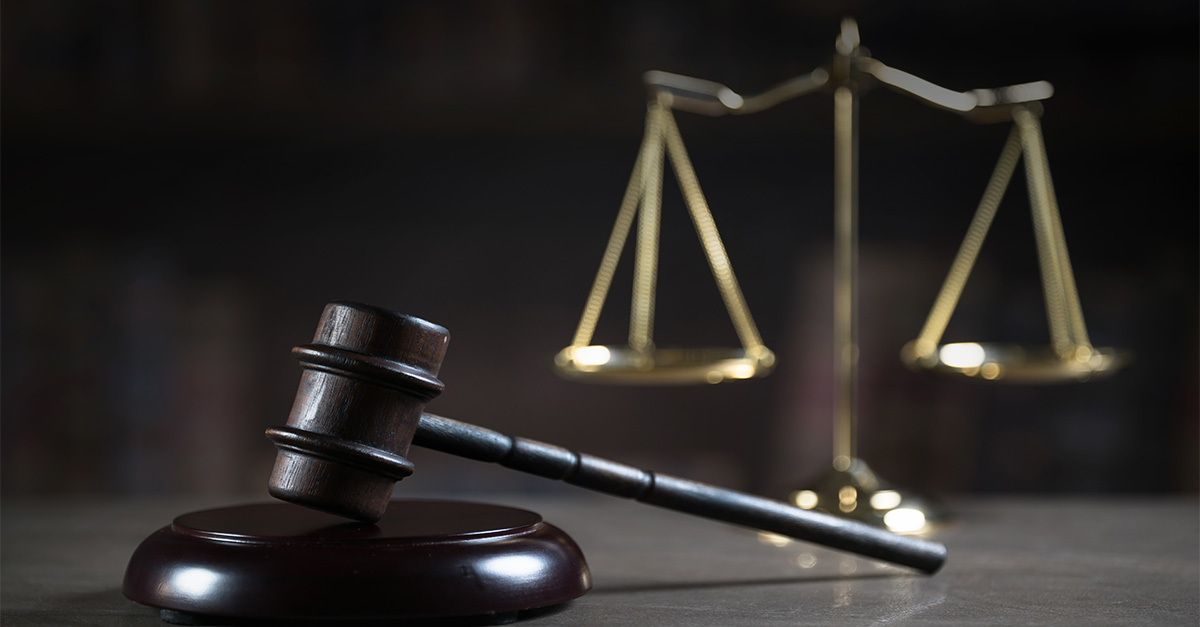


Get a free copy of Parental Rights & Education when you subscribe to our newsletter!

“After the Supreme Court finally reversed one of the greatest travesties, morally and legally, in our nation’s history, groups like the ACLU and the Center for Reproductive Rights are trying to convince state courts to repeat the same mistakes, stepping outside of the court’s powers to invent a right to an abortion and block laws duly enacted by state legislators and the democratic process.”
–Nathan Skates
Kentucky, Texas, and Louisiana were among the states that had put in place trigger laws that would immediately ban abortion if Roe v. Wade was ever reversed. When that happened, abortion was automatically made illegal in all of those states.
But only for a brief moment because almost immediately the American Civil Liberties Union (ACLU) and other abortion groups filed lawsuits. The suits don’t all take the same approach; for example, in Kentucky and Florida the ACLU is trying to argue that the state constitution guarantees the right to an abortion because they contain a right to privacy. In Texas, the ACLU is challenging the state’s pre-Roe ban on abortion. In Louisiana, the Center for Reproductive Rights is arguing that the state’s abortion laws are too vague.
In each instance, these arguments have led judges to temporarily block duly enacted laws. Although the cases will be argued and heard on their merits, the judges’ actions are overriding the Supreme Court’s clear ruling to return power over abortion back to the states.
In Kentucky, Jefferson County Circuit Court Judge Mitch Perry initially blocked the state’s ban on abortion (except for the life or health of the mother). Attorney General Daniel Cameron appealed that injunction, but each level of the court system has denied his request to reinstate the ban, including the Kentucky Supreme Court, which ruled against him yesterday.
Cameron voiced his disappointment with the decision on Twitter, saying, “The Supreme Court’s decision to continue delaying enforcement of Kentucky’s Human Life Protection Act and Heartbeat Law is disappointing.”
He added,
“We’ve now asked all three levels of Kentucky’s judiciary to allow these laws to take effect. Not a single judge at any level has suggested these laws are unconstitutional, yet we are unfortunately still prohibited from enforcing them. We will not be deterred in defending these important laws.”
In fact, Cameron and his team got another chance today when the case went back before the Jefferson Circuit Court to be heard on its merits. The case, which could result in the ban being reinstated, is expected to last through the week.
During today’s hearing, the ACLU tried to argue for the merits of abortion as if they were testifying before a legislative committee about a proposed bill rather than challenging the constitutionality of an already passed law. One of their witnesses, Dr. Jason Lindo, an economics health professor at Texas A&M, testified about the economic effects of banning abortion and called pregnancy a “disruptive life event.”
Dr. Ashley Bergin, an OBGYN and University of Louisville associate professor, then testified of the health risks of pregnancy.
David Walls, executive director of the Family Foundation, responded to the court’s decision to put a block on Kentucky’s abortion ban by saying, “We understand that the pro-abortion industry, in order to continue their business, which is to end the lives of unborn children, would run now into state court and unfortunately they’ve found a state court judge that was willing to put the law on hold.”
In the lead up to the Supreme Court’s decision, states prepared for the potential of an overturning of Roe v. Wade in different ways. Some states passed laws specifically protecting the right to an abortion or added that right to their state constitution. Others did the opposite, passing pro-life legislation.
Kentucky was one of the pro-life states, and it passed a trigger law to ban abortion. There is no right to an abortion in the state’s constitution, but the ACLU is attempting to get a court to invent one, just like the Supreme Court did in Roe v. Wade in 1973.
It seems that very well could happen in Florida, where a district court judge ruled that the Supreme Court’s ruling doesn’t affect Florida. He said that the state’s Supreme Court has previously interpreted the state’s constitutional right to privacy to include abortion. “The right to privacy under the Florida Constitution is ‘much broader in scope’ than any privacy right under the United States Constitution,” Leon County Circuit Court Judge John Cooper wrote.
Cooper further stated, “Any law that implicates the fundamental right of privacy is … presumed to be unconstitutional.” He also argued that the state’s ban on abortion after 15 weeks does not serve a sufficient state interest.
Florida Gov. Ron DeSantis, R, responded by saying, “The Florida Supreme Court previously misinterpreted Florida’s right to privacy as including a right to an abortion, and we reject this interpretation. The Florida Constitution does not include — and has never included — a right to kill an innocent unborn child. We will appeal the ruling and ask the Florida Supreme Court to reverse its existing precedent regarding Florida’s right to privacy. The struggle for life is not over.”
Florida Attorney General Ashley Moody has already appealed.
In Texas, the ACLU argued that the state’s pre-Roe ban was “repealed and unenforceable.” For now, the state’s trigger law would still go into effect. The ACLU seems to be stalling for the benefit of abortion providers, saying, “If plaintiffs are successful in blocking enforcement of the pre-Roe ban, some abortion providers in the state would resume abortion care up to six weeks, providing critical, if temporary, relief for Texans with a very early pregnancy as access to abortion has been decimated across the southern United States.”
Perhaps most frustrating for pro-lifers is the Center for Reproductive Rights’ case in Louisiana. There they don’t argue that the state guarantees the right to an abortion; that’s because Louisiana voters overwhelmingly voted to adopt a constitutional amendment explicitly saying that there is no state right to an abortion. Instead, they argue that the state’s trigger laws violate abortion providers’ due process rights and lack safeguards to prevent arbitrary enforcement. The Center also argues that the start date of the ban is vague.
Yes, you read that correctly. A state that has a law set to take effect after Roe v. Wade was overturned and which passed a constitutional amendment to specifically say there is no right to an abortion can’t ban abortion because somehow the wording “after Roe” is too vague. Orleans Parish Civil District Court Judge Robin Giarrusso blocked three state laws.
After the Supreme Court finally reversed one of the greatest travesties, morally and legally, in our nation’s history, groups like the ACLU and the Center for Reproductive Rights are trying to convince state courts to repeat the same mistakes, stepping outside of the court’s powers to invent a right to an abortion and block laws duly enacted by state legislators and the democratic process. Roe was built on lies and deception as well as laughably shaky legal reasoning, and it is no different today.
This dangerous deviation from our founding principles must be stopped immediately if we are to live in a nation governed by the people, a nation of laws, rather than one manipulated by activist judges. The first step is to do as Louisiana did and make it clear that there is no right to an abortion in your state. Kentucky voters will have that opportunity on November 8. Every state should follow suit. The right to privacy is not a right to an abortion.
By inventing the right to an abortion, judges deprive citizens of the actual right of self-governance.
Proverbs 29:12 says, “If a ruler pays attention to falsehood, All his ministers become wicked.”
The Supreme Court listened to faulty reasoning and made up a right to an abortion even though none existed. Some lower judges are doing the same thing — or at least considering it. Judges must stop listening to lies and govern the people with fairness and justice. Judges must stop inventing rights and leave that to the constitutional process and will of the people.
Trigger laws should have been straightforward: Once Roe v. Wade was overturned abortion in those states should have been automatically illegal. The current court cases make a mockery of our system of laws and government, and the ACLU and others don’t seem to care if, in their push to use any means to get the ends they want, they succeed in destroying these core pillars of our society.

Notifications